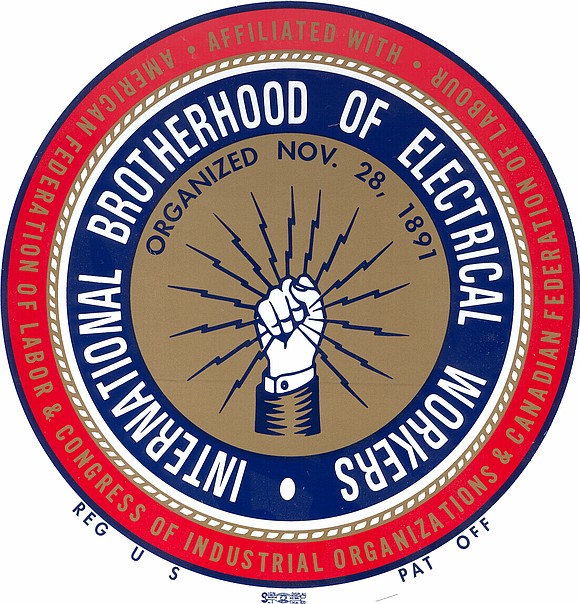Business Manager Tony Sapienza
“Right-to-Work” Legislation Looms as Threat to Unions in NH & Maine; IBEW 1837 Members Fight Back
January 29, 2011 - The collective bargaining rights of IBEW 1837 members and all union members in Maine and New Hampshire are being threatened by so-called “Right-to-Work” legislation being considered in Augusta and Concord. They’re often called “Right-to-Work (For Less)” laws because workers in 22 states that already have them tend to get paid less money and have worse benefits.
Union contracts – including worker pay, benefits and working conditions – could ultimately be damaged if this type of legislation is enacted in New Hampshire, Maine, or any of the 16 states where it is now being considered. A hearing is scheduled in Concord on HB474 on Thursday, February 3, and a hearing on a Maine bill is expected soon. Union members must take action together if they’re going to stop this anti-worker, anti-union legislation. Remember, “Right-to-Work” has nothing to do with protecting worker rights or having a job. It’s about damaging unions and the workers who are in them.
Dozens of IBEW 1837 members in both states have been getting involved in the fight. This has included contacting their legislators and members of the public through various means. One of those members getting active in the campaign is PSNH Lineworker Tom Carpenter.
“Having travelled extensively around the country, and visited Right-to-Work states like South Carolina, I’ve seen that people in those states are paid less,” said Brother Carpenter. “They have a lower standard living, and their communities suffer as a result.”
“This kind of legislation is designed to attack unions, threaten our very existence and break our bargaining power,” said Maine AFL-CIO Executive Director Matt Schlobohm, who is helping to coordinate the campaign against Right-to-Work (For Less) legislation in the Pine Tree State. IBEW 1837’s elected leadership is just as concerned about these bills.
“Given the more sympathetic nature of the legislatures in Maine and New Hampshire toward these bills, and given what we know the impact of this legislation will be if it passes, this is easily the most important political fight since I’ve been in this union,” said Business Manager Cynthia Phinney, who joined IBEW in 1991. “As many of our members realize, it is union-busting, plain and simple.”
Call the union office at 207-623-1030 or 603-743-1652 for more information about what you can do to help, or click here to contact us by email.
Call your own State Representatives and tell them that Right-to-Work is wrong for workers, wrong for the economy, and wrong for our communities. Here are links to web pages that will help you find out who your State Representatives are:
In New Hampshire: http://www.gencourt.state.nh.us/whosmyleg/
In Maine:http://www.maine.gov/portal/government/edemocracy/lookup_voter_info.php
Get the Facts on Right-to-Work (For Less) Laws
- This isn’t about individual rights. No one can be forced to join a union. That’s the law.
- State law gives employers and the union the option to bargain a contract clause that says everyone covered by the contract must pay their share of negotiating and enforcing the contract. Non-members pay only those costs related to negotiating and enforcing the contract. A Right-to-Work (For Less) law makes such contract clauses illegal.
- Federal law also requires unions to bargain for and represent everyone. Non-members and members get the same contract benefits and protections.
- With Right-to-Work (For Less), unions are required to spend the money from workers who pay their dues or fees to protect the contract rights of workers who don’t pay a cent. That’s not fair, and it damages the union’s ability to represent dues-paying members.
If you want to learn more, visit the AFL-CIO website by clicking here or download a 6-page report from the University of Maine's Bureau of Labor Education by clicking here.
